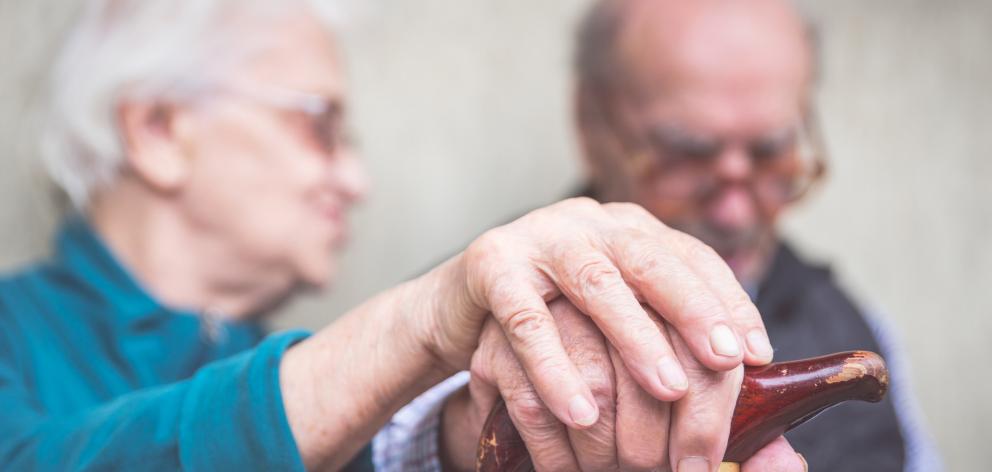
Recently I read about a small boy who desperately needs his tonsils and adenoids removed. However, in our country, with an economy that is the envy of the world, he must endure at least eight months of constant infections while his mother begs on the internet in the hope of financing a faster, private operation.
There are many other similar situations: a young woman waiting as she goes deaf, people who need heart and cancer surgery, all waiting until they are sick enough to qualify. How scary is that? How cruel? Where is the public outcry? The news seems to cause barely a ripple. I wonder what sort of a country have we become?
Regrettably, we have our own story to tell.
My husband has dementia and I must ``take a break to survive'' - not my words but the continuous prompting of health professionals. The Ministry of Health states it ``aims'' to keep people with dementia at home, receiving ``the right service at the right time and in the right place''. It's better for them and mostly cheaper. The reality is Dunedin falls far short of this aim.
My husband needs ``secure'' respite care, but there is no rest-home in Dunedin that regularly offers this service - and there are no vacancies here, unlike the other main centres.
When I wrote explaining this to the Health Minister, I was advised to take my husband 50km to 90km away to Palmerston, Milton or Balclutha. Dunedin is the only main centre where this is considered a viable option.
Dementia is an isolating disease. Being locked up is confronting. Taking a person far from the warmth of family and friends, from possible visitors and the chance to be taken out into the normal world is inhumane, cruel and poor health care. It's easy to think of a person with dementia as having no intellect or feelings, or no longer needing to be part of the family and the community. These assumptions are untrue.
Since the Government introduced a market approach to aged-care, the bottom line for rest-homes has been profit. The Southern District Health Board has told me I must realise rest-homes are businesses. Respite is unpopular because it doesn't pay as well and is seen as requiring more effort and paper work.
All carers contribute an impressive $10.6billion, 5% of gross domestic product, to our economy - according to Infometrics (2013). Any other venture making such an economic contribution would be hailed as ``the toast of the nation'' and treated with awe and esteem.
Carers, like myself, are provided with a financial allocation for regular ``secure'' respite care but, several years ago, the SDHB cancelled all such contracts with rest-homes in Dunedin because ``they were not seen as being good value for money'' and ``there were other demands on the budget''. According to the SDHB, available beds were not always full so a red pen went through the lot, with no further thought to the human cost, or the reality of what was being funded and why. Many health workers and some rest-homes have memories of full rotational respite rosters.
The SDHB, which delivers the policies of the Ministry of Health, knows that, without respite, carers can expect to become sick from exhaustion and stress. Social workers confirm they regularly observe these situations. Such mismanagement of chronic conditions is the leading cause of hospitalisations; it accounts for 80% of preventable deaths and is estimated to consume most of our healthcare funds.
In reality, I feel we are a non-viable economic unit, a thing. The Government's aim, according to the Ministry of Health, to support carers ``through their journey with dementia - to maintain and maximise their abilities, optimise their sense of wellbeing and have control over their circumstances'' is not working for us. The reality, here in Dunedin, is falling well short.
This is a silent, hidden and growing problem: 1.9% of the New Zealand population now has dementia and the problem is growing steadily worse. Many carers are very elderly, with significant health problems themselves. Others have no transport so travelling to other centres for respite care is not an option. Most carers become exhausted and have no energy to fight or state their case. Others fear discrimination when in need, if they speak out.
Nobody at any level seems willing to own this problem, let alone engage in constructive discussion and problem solving.
I thought we were a better country than this.
Susan Millar, of Dunedin, has been a full-time carer for nine years.












